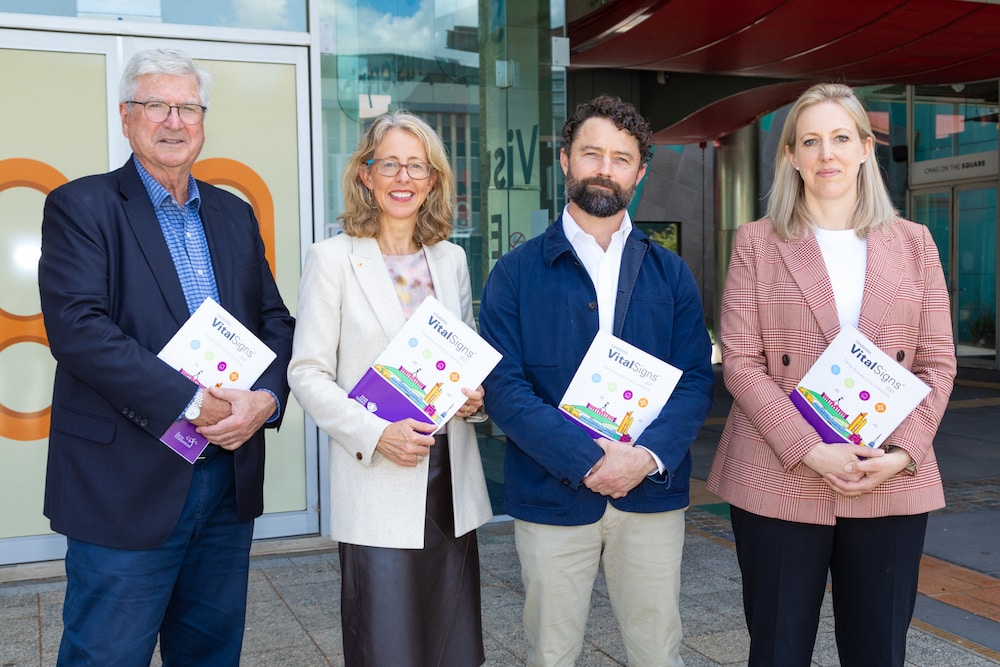Canberra, said Georgina Byron, CEO of the Snow Foundation, is “a very liveable, welcoming place”; most people have a strong sense of belonging, and embrace cultural diversity. But Aboriginal people are still disadvantaged, according to the Vital Signs report published yesterday.
The ACT has the lowest adult imprisonment rate in Australia (seven per cent decrease from 2018) – but Indigenous people are 16 times more likely to be incarcerated. (Even then, this is still the second lowest rate in Australia.)
Half of the women and a quarter of the men in the Alexander Maconochie Centre are Aboriginal or Torres Strait Islanders, while 30 per cent of the children in out-of-home care are from Indigenous communities.
“That’s a tragedy opening before our very eyes and it’s getting worse,” said Peter Gordon, CEO of Hands Across Canberra. “So, government has to do something about that.”
Earlier this year, Julie Tongs, CEO of the Winnunga Nimmityjah Aboriginal Health Service, called for a commission of inquiry or royal commission into the overrepresentation of Aboriginal and Torres Strait Islander peoples in the justice system.
The ACT also has the second highest reported rates of discrimination in the country; 18 per cent in the last 12 months, compared to 13 per cent nationally.
More positively, the ACT ranks highest in Australia for informal volunteering in the last month (39 per cent, compared to 32 per cent nationally), voluntary work through an organisation in the last year (31 per cent, compared to 25 per cent nationally), and for individual taxpayers making a donation (36 per cent, compared to 29 per cent nationally).
Unsurprisingly, the ACT has the highest proportion of people who feel they can trust most people (71 per cent, compared to 61 per cent nationally).
“We know at ACTCOSS the passion and care that Canberrans have for social justice and fairness in our communities,” said Dr Emma Campbell, CEO of ACT Council of Social Service.
If that is so, then, as Peter Gordon suggests, fixing these problems will take the whole community.
“We talked about a city of belonging, a city where we’re all not OK until we’re all OK,” Mr Gordon said. “In fact, we’ve got a chance to do that because we all want that.
But, he said, often poverty is only real to those experiencing it.
“It’s not real to the rest of us because we have milk in the fridge and our beds are warm. Somehow or other, we have to create a whole conversation about being OK.
“That’s a lot of work, and we’ve all got a part to play. It’s the government’s job. It’s businesses’ job. It’s individuals’ job. It’s people in your street’s job. It’s all of our job.”
Get all the latest Canberra news, sport, entertainment, lifestyle, competitions and more delivered straight to your inbox with the Canberra Daily Daily Newsletter. Sign up here.



